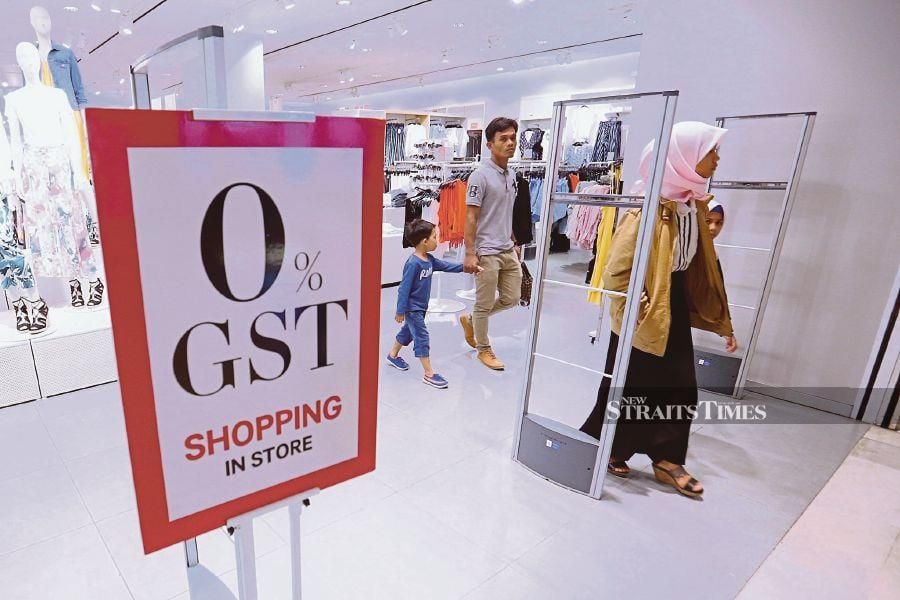As Budget Day approaches, the clamour for tax reform grows louder. Tax reform is imperative as the budget deficit looms large, at five per cent of gross domestic product (GDP), and public debt remains high, at 63 per cent of GDP.
The government has not ruled out the re-introduction of the goods and services tax (GST), as part of its fiscal rectitude. This is because economists consider GST an efficient tax system for several reasons.
First, as a consumption tax, it broadens the tax base to net all who buy goods and services. Contrast this against the current tax system where only four per cent of the population pay income tax. It is for this reason that over 170 countries have introduced a consumption tax. Albeit short-lived, Malaysia, too, had experimented with the GST from 2015 to 2018.
Even if GST is imposed on 50 per cent of consumption after exempting essential foodstuffs and necessities, at a six per cent rate, the tax will rake in some RM45 billion annually. This will immediately half the budget deficit.
Second, unlike the progressive income tax, which discourages savings and investment through taxes on interests and dividends, GST increases savings and investments by discouraging consumption.
That will allow the economy to grow over the long-term. Moreover, the spike in inflation as a result of GST is one-off. Research suggests that over the long haul, inflation will be lower under the GST regime than without it.
Third, a cut in the GST during an economic downturn will boost consumption more than a reduction in income tax. Cuts at higher tax rates often encourage savings by the rich.
Furthermore, the interest and dividends therefrom add to the economic inequality in society. Additionally, GST may boost growth as quick-footed consumers spend forward in anticipation of its introduction.
GST has its downsides. First, it is regressive as it will constitute a larger share of income of the B40 and M40 income households. As this segment of the population pay little, if at all, income tax, the GST will be a tax on them.
Second, GST requires a sustained economic growth before implementation. For example, the time may not be ripe now for the government to implement GST given sticky wages and a depreciated ringgit.
It will add to the cost of living as prices spike with GST. And it may dent economic recovery as the GST shrinks consumption.
Third, no tax is popular and Malaysians loathe the GST. As such, its introduction may spell trouble in the next election. Although there were other factors involved, the GST was instrumental in the fall of the Barisan National government in 2018.
In Japan, the value-added tax caused the departure of the prime minister and undermined the popularity of the government when it was modestly increased from three to five per cent in 1997.
Here are three strategies to navigate these pitfalls.
First, timing is important. The government should wait until economic recovery is robust enough to sustain lower consumption levels consequent to the GST. Japan introduced its consumption tax in 1987, when its economy was at the peak.
Compensatory spending by the government would not do, as it would negate the benefit of the GST in alleviating the debt and deficit burden. The government, therefore, should double down on economic growth through infrastructure development, encouraging foreign investment and entrepreneurship.
Second, start small. Japan started with a three per cent rate. Even its current 10 per cent rate is only half of those in the European Union. When Malaysia introduced the GST in 2015, the rate was six per cent.
Starting at three per cent would be revenue neutral as it would offset the loss of revenue from the sales and service tax. It would also be more palatable to the public. The tax rate could then be gradually increased by one per cent over five years.
Third, the public must be convinced that that there would not be any leakages in public finances through corruption and mismanagement.
Such defects would only erode public confidence in the GST as a tool of fiscal consolidation.
The writer is AIMST University vice-chancellor
The views expressed in this article are the author's own and do not necessarily reflect those of the New Straits Times





